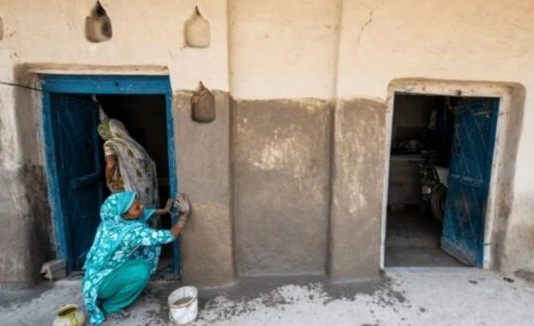
In earlier times, when cement, tiles and expensive floors were not there, people in rural areas used their homes with cow dung. This tradition was not just for cleanliness or beauty, but many reasons were hidden behind it. This tradition was not just for cleanliness or beauty, but there were many reasons behind it, which may not be known about many people. So let’s understand the reasons behind it today.
In earlier times, when cement, tiles and expensive floors were not there, Leogs used to leap their homes with cow dung in the village areas. This tradition was not just for cleanliness or beauty, but dung has natural disinfectant properties. It used to help in removing the bacteria and mildew on the ground and walls of the house.
In summer, the paste of dung keeps the house cool and in winter it helps to maintain heat. At the same time, dust keeps blowing on the ground in raw houses. On leaping with cow dung, the land was smooth and clean, which reduced the chances of flying dust.
The smell of cow dung and the biological elements present in it keep mosquitoes, flies and other insects away. Especially during the rainy season it was very beneficial. According to the scriptures, Lakshmi resides in cow dung, so it is used to maintain happiness and prosperity in the house.
When raw houses were taken regularly with dung, it became more durable and strong. Due to this, there was no cracks in the ground and the water did not go soon.
In Hinduism, cow is considered sacred. Therefore, cow dung is also considered sacred. Whenever there was a puja in someone’s house, it was considered necessary to leap the house with cow dung before that.